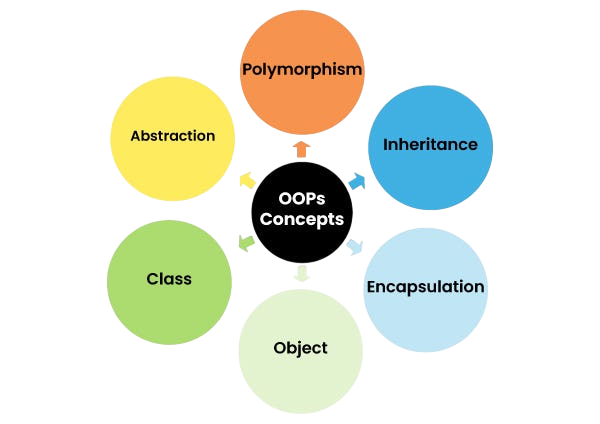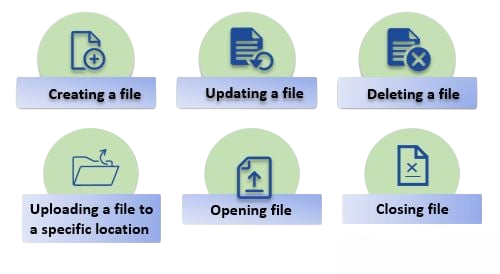
- Introduction to C++ Project Development
- Setting Up Development Environment
- Basic Project Ideas
- Intermediate Projects (e.g., Bank System)
- Advanced Projects (e.g., Chat App, Compiler)
- Using OOP Concepts
- File Handling Projects
- Integration with Databases
- Debugging and Testing
- Code Documentation and Comments
- Git and Version Control
- Deployment Considerations
- Conclusion
Introduction to C++ Project Development
C++ is a high-performance, object-oriented programming language widely used in software development. From embedded systems and desktop applications to gaming and real-time simulations, C++ has been the foundation of many powerful systems. Its speed, flexibility, and control over system resources make it ideal for learning and developing real-world applications. To scale these capabilities across distributed environments, exploring Cloud Computing Course reveals how developers can harness virtual infrastructure, optimize resource allocation, and deploy resilient applications preparing for careers in scalable, cloud-native development. When it comes to learning C++, project development provides an excellent way to put theory into practice. It allows students and developers to understand the structure of an application, problem-solving techniques, and how different programming concepts work together in a cohesive system.
To Earn Your Cloud Computing Course Certification, Gain Insights From Leading Cloud Computing Experts And Advance Your Career With ACTE’s Cloud Computing Course Today!
Setting Up Development Environment
Before starting with C++ project development, it is crucial to set up a proper development environment. The first step is to install a C++ compiler like GCC (GNU Compiler Collection) or MSVC (Microsoft Visual C++). Next, you need an Integrated Development Environment (IDE) such as Code::Blocks, Visual Studio, Eclipse CDT, or CLion. These IDEs offer built-in support for debugging, code suggestions, and syntax highlighting. Additionally, you might use command-line editors like Vim or Emacs if you prefer a more minimalist setup. To manage your codebase efficiently across these tools, exploring Git and Version Control reveals how developers track changes, collaborate seamlessly, and maintain clean project histories ensuring consistency and control throughout the development lifecycle. It’s also recommended to use Git for version control to track code changes and collaborate with others effectively.
Basic Project Ideas
These basic projects help learners grasp core programming concepts such as loops, conditionals, functions, arrays, and file handling. To evolve from foundational exercises to scalable architecture, exploring What are Microservices reveals how modular services communicate over APIs, enabling developers to build flexible, maintainable systems where each component handles a specific business function independently.
- Calculator Application: Performs addition, subtraction, multiplication, and division.
- Number Guessing Game: Uses loops and random number generation to let users guess a randomly chosen number.
- To-Do List: Stores daily tasks using arrays or linked lists.
- Student Record System: Manages and displays student records using structures or classes.
- Unit Converter: Converts units such as length, temperature, and weight using conditional statements.
These beginner projects improve logic building, syntax familiarity, and help learners gain confidence.
Would You Like to Know More About Cloud Computing Course? Sign Up For Our Cloud Computing Course Now!
Intermediate Projects (e.g., Bank System)
Intermediate C++ projects require a good grasp of object-oriented programming and involve more components like file handling, classes, and modular code design. One common intermediate-level project is a Bank Management System. It typically involves the following: account creation, transaction handling, and data persistence. To contrast this with a more beginner-friendly language, exploring What is Python Programming reveals how Python’s simplicity, dynamic typing, and rich standard library make it ideal for rapid prototyping and scalable application development.
- Account Creation and Management: Users can open accounts, deposit/withdraw money, and view balances.
- File Handling: Data is stored persistently using files.
- Authentication: Login systems with usernames and passwords.
- OOP Design: Classes and objects represent users, transactions, and accounts.
Other intermediate project ideas include:
- Library Management System
- Hotel Booking System
- Inventory Management Software
- Quiz Game with Scoring System
These projects help learners understand the importance of code structure, encapsulation, and data management.
Advanced Projects (e.g., Chat App, Compiler)
C++ projects can improve your programming skills by introducing complex concepts and real-world applications. One interesting project is a Chat Application. It uses socket programming to enable real-time communication between users over the internet or a local network. This project can include features like user login, message encryption, and group chats. Another option is a Mini Compiler, which focuses on tokenizing and parsing a simplified language. This project gives you insights into lexical analysis and syntax trees. You might also think about creating an Operating System Shell. This shell can execute basic Linux commands and manage processes. For those interested in graphics, building a 3D Game Engine with libraries like OpenGL and SDL lets you render immersive environments and manage object interactions. To scale such projects across distributed platforms and virtualized infrastructure, exploring Cloud Computing Course reveals how developers can deploy resource-intensive applications, manage backend services, and ensure seamless performance in cloud-native environments. Lastly, a Face Recognition App using OpenCV and C++ can give you practical experience with machine learning algorithms for detecting and recognizing faces. These projects provide valuable chances to enhance your understanding of system-level programming, memory management, and the use of external libraries.
Are You Interested in Learning More About Cloud Computing Course? Sign Up For Our Cloud Computing Course Today!
Using OOP Concepts
C++ is known for its strong support of object-oriented programming (OOP), which is key for developing effective software projects. In a typical Vehicle Management System, you can see OOP principles in action. First, encapsulation groups data and related functions within classes. This makes the code cleaner and easier to manage. Abstraction simplifies complexity by hiding unnecessary details and showing only the features that matter to the user. Inheritance lets developers create new classes from existing ones, promoting code reuse and better functionality.

Finally, polymorphism allows the same function to act differently, depending on which object calls it. To contrast these principles with dynamic data handling in Python, exploring Know About Python List reveals how lists offer flexible, iterable containers that support indexing, slicing, and runtime modifications making them ideal for rapid prototyping and modular design.
- class Vehicle {
- public:
- virtual void displayDetails() = 0;
- };
- class Car : public Vehicle {
- void displayDetails() override {
- cout << “This is a car.”;
- }
- };
Projects with these principles make code reusable, scalable, and easier to manage.
Gain Your Master’s Certification in Cloud Computing by Enrolling in Our Cloud Computing Master Program Training Course Now!
File Handling Projects
File handling is an important skill for storing and retrieving persistent data. C++ uses ifstream, ofstream, and fstream classes to manage files. Projects that use file handling include: inventory systems, student databases, and banking applications. To understand how these skills translate into professional responsibilities, exploring What Is a Software Developer reveals how developers design, implement, and maintain software systems applying core programming concepts to solve real-world problems across industries.

- Student Grade Management: Stores student names, marks, and computes GPA.
- Billing System: Creates invoices and maintains transaction records.
- Employee Attendance System: Tracks attendance records using text files.
- ATM Interface: Simulates ATM operations with file-stored account balances.
These projects simulate real-world applications and teach efficient data manipulation techniques.
Preparing for Cloud Computing Job Interviews? Have a Look at Our Blog on Cloud Computing Interview Questions and Answers To Ace Your Interview!
Integration with Databases
Although C++ doesn’t directly support databases, libraries like MySQL Connector/C++, SOCI, and ODBC help in integrating C++ applications with databases. Example projects include: inventory management systems, student record platforms, and banking applications. To compare how modern languages handle such integrations more natively, exploring Kotlin vs Java reveals how both platforms offer robust database connectivity, streamlined syntax, and enhanced tooling making them popular choices for scalable backend development.
- Hospital Management System: Stores patient records, appointments, and billing in a MySQL database.
- E-commerce Inventory Manager: Tracks products, prices, and stock levels efficiently.
- Customer Relationship Management (CRM): Manages contacts, interactions, and sales pipelines.
Learning to run SQL queries, handle connections, and manage errors in C++ provides valuable exposure to backend development.
Debugging and Testing
Every developer must learn debugging and testing. Tools like GDB (GNU Debugger), Valgrind (for memory checking), and IDE-integrated debuggers help identify bugs and memory leaks. C++ testing frameworks include: Google Test, Boost.Test, and Catch2. To understand how these practices align with clean design principles, exploring What is Abstraction in Java reveals how abstraction hides implementation details and exposes only essential features enabling developers to write modular, testable, and maintainable code across languages.
- Google Test (gtest).
- Catch2.
- CppUnit.
Testing ensures that each function behaves correctly. Developers should also learn to write unit tests, create test cases, and use assertions to validate output.
Code Documentation and Comments
Writing clear code is as important as writing correct code. Documenting your code ensures it is understandable and maintainable. Use inline comments, block comments, and documentation tools like Doxygen. Comments should explain the “why” behind decisions and describe the purpose of complex functions or algorithms. For collaborative development, documentation helps future developers understand and extend the codebase. To reinforce these practices with foundational logic, exploring Data Structures and Algorithms reveals how clear documentation complements efficient code especially when working with trees, graphs, sorting techniques, and recursive solutions in scalable Python applications.
Git and Version Control
Git is essential for modern development workflows. Developers should: commit frequently, write meaningful messages, use branches for feature isolation, and review changes before merging. To understand how version control practices align with language-specific workflows, exploring Go vs Python reveals how each language approaches tooling, concurrency, and collaboration helping developers choose the right stack for scalable, team-driven development.
- Create repositories on GitHub/GitLab.
- Use branches for new features.
- Commit regularly with meaningful messages.
- Resolve merge conflicts and use pull requests.
Using Git helps track project history, collaborate with teams, and manage different versions of the application.
Deployment Considerations
Once a project is complete, it’s time to deploy it. For local applications: developers typically use lightweight servers, containerization tools, or platform-specific installers. To scale deployment across distributed systems and external services, exploring Soap vs Rest reveals how different API architectures impact integration, performance, and security helping teams choose the right protocol for seamless communication between services.
- Create executable files using g++ or IDE build systems.
- Use NSIS or Inno Setup for Windows installer creation.
- For Linux, create .deb or .rpm packages.
Cross-platform apps require testing on different OSes. You must also consider performance optimization, error logging, and user feedback mechanisms. If your application uses networking or databases, ensure secure connections and follow best practices like input validation and rate limiting.
Conclusion
C++ project development equips developers with real-world coding experience, logical thinking, and professional software engineering practices. Starting with simple calculators and evolving toward advanced compilers or network applications provides a comprehensive learning journey. Projects encourage the use of OOP, file handling, debugging, and database integration. By following best practices in documentation, version control, and deployment, developers not only create robust applications but also prepare for industry-grade software development. To scale these practices across distributed systems and modern infrastructure, exploring Cloud Computing Course reveals how developers can leverage cloud platforms, automate deployments, and maintain high availability ensuring their applications meet enterprise standards in performance and reliability.





